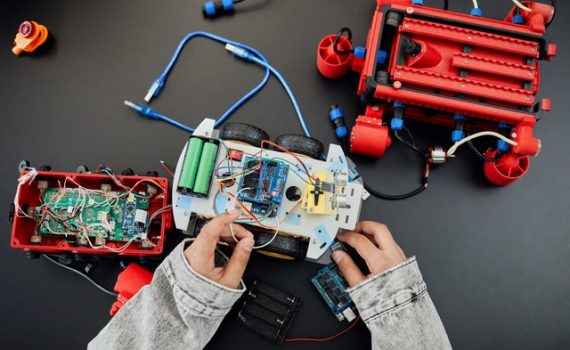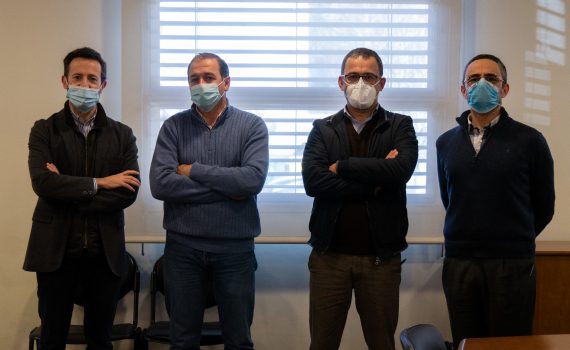The High-Assurance Software Laboratory (HASLab) of the School of Engineering is the coordinator of the SpecRep (Constraint-based Specification Repair) project, which aims to promote the correct formal specification of software components necessary for the development of reliable software. This type of software is increasingly used in critical systems, that is, […]
Yearly Archives: 2022
The High-Assurance Software Laboratory (HASLab) of the School of Engineering will develop solutions that will allow Wide Area Networks (WAN) communications networks to adapt, in real time, to the availability and source of electricity, giving priority to renewable sources. The FLEXCOMM project (Towards energy-aware communications: connecting the power grid and […]
New tool reduces the cost of robots and increases their reliability and safety Whether to clean our homes, manufacture products or even disable bombs, robotics is increasingly used, as it performs tasks faster and more efficiently. Focusing on the development of safer high-quality robotic applications, with lower costs, the Institute […]
The Deucalion supercomputer, to be installed in Minho Advanced Computing Centre (MACC), will thus operate in the most sustainable way possible The project’s main goal is to develop an innovative energy management solution that allows the operation of a supercomputer more sustainable, which analyzes the degree of emissions of electricity […]
The High-Assurance Software Laboratory (HASLab), a research centre of the School of Engineering, coordinates the project “Quantitative methods for cyber-physical programming: reasoning precisely about inaccuracies in cyber-physical behaviour”, which aims to develop mathematical methods for modelling and analysing inaccuracies in cyber-physical software. Cyber-physical systems are a critical part of Industry […]
The ash and gases released by the erupting volcano were used to test the probes that CMEMS researchers are developing The CMEMS – Center for MicroElecrtoMechanics Systems of the School of Engineering is developing a project that aims to contribute to better atmospheric and oceanic monitoring, developing a doubly innovative […]
The AlleRiskAssess project also aims to produce an innovative test that can be used as a standard for assessing the presence of allergens in food products If there are more Portuguese with severe food allergies, as Alimenta – Portuguese Association of Food Allergies and Intolerances warns, what can be done […]
Paulo Mateus Mendes, Associate Professor of the Department of Industrial Electronics of the School of Engineering was re-elected director of CMEMS – Center for MicroElectroMechanics Systems. The management team also includes Nuno Miguel Magalhães Dourado, Associate Professor of the Department of Mechanical Engineering, and José Luís Carvalho Martins Alves, Associate […]







